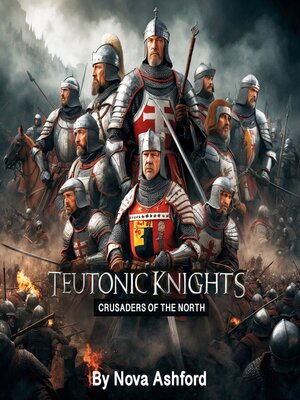
Sign up to save your library
With an OverDrive account, you can save your favorite libraries for at-a-glance information about availability. Find out more about OverDrive accounts.
Find this title in Libby, the library reading app by OverDrive.



Search for a digital library with this title
Title found at these libraries:
| Library Name | Distance |
|---|---|
| Loading... |
This audiobook is narrated by a digital voice.
The Teutonic Order, one of the most formidable military orders of the medieval period, traces its origins to the Third Crusade, a time when religious fervor and territorial expansion collided in the Holy Land. The order itself was initially founded in 1190 in the aftermath of the Crusaders' siege of Acre, during the height of Christian efforts to reclaim Jerusalem from Muslim forces. It began as a group of German merchants and pilgrims who sought to offer aid to their fellow Crusaders, providing medical care and logistical support. Initially, the Teutonic Knights were not a military force, but over time, their role evolved as they became increasingly involved in the defense and expansion of Christian interests in the East.
The Teutonic Order was officially established in 1198, with the recognition of its rules and constitution by the Pope. This solidified the group's transformation from a charitable organization to a formal military order, following the same model as the more famous Knights Templar and Knights Hospitaller. Its primary objective was to protect Christian pilgrims traveling to the Holy Land, though its military role grew significantly as it participated in various campaigns during the Crusades.
Unlike the other military orders, the Teutonic Knights were composed largely of German-speaking members, which shaped their unique character. The order's early efforts were focused on supporting the Crusader states in the Holy Land, but it quickly turned its attention to the north, where opportunities for expansion and Christianization lay. In 1202, the Teutonic Order's leadership began to focus on the Baltic region, where pagan tribes like the Prussians, Lithuanians, and Latvians resisted Christianization. The Knights saw an opportunity to extend the reach of Christianity and their own influence in the region, ultimately leading to their mission in the Baltic that would shape the future of the order.







